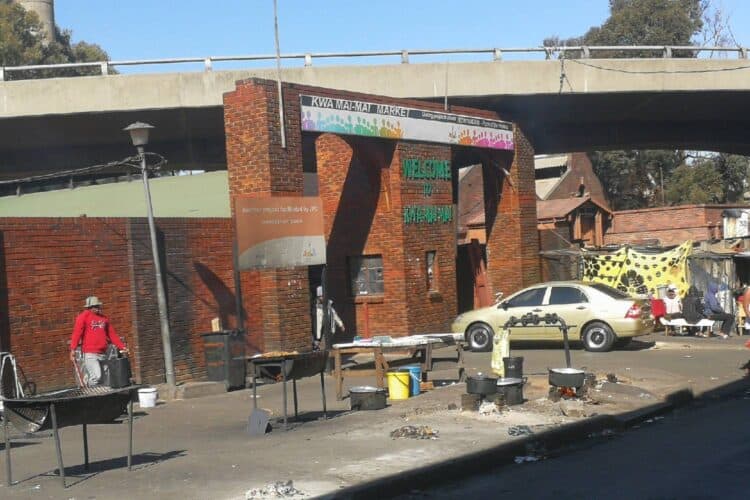Kwa Mai Mai is the subject of intense debate on social media, with a line drawn in the sand between traditionalists and modernists who want the historic establishment to catch up to culinary trends.
Joburg’s oldest market comes under fire on social media
For Joburgers, Kwa Mai Mai, one of the oldest markets in the City of Gold, is a go-to for everything to do with African culture. The market, situated a few blocks from the Maboneng Precinct, houses a variety of stalls.
Shoppers can easily access traditional medicine, consultations with spiritual healers and premium quality African street food at below-market prices.
While the history of the market is undocumented, it is hailed as a staple shopping district for Africans. It is also regarded as a tourist hotspot.
In 2014, the City of Johannesburg injected R3.2 million into a refurbishment project “to enhance its appearance thereby attracting customers especially tourists into the iconic facility.”
“The precinct was overcrowded and insecure after it was neglected for a long time. It has now been given a new kiss of life. Tourists are now back and the whole area is abuzz with informal traders and business is booming like before,” MMC for Economic Development at the time, Ruby Mathang, wrote.
Social media reactions to Kwa Mai Mai food culture
Before the market became the trendy hangout spot for social media clout chasers, it was a resting port for long-haul taxi drivers and truckers who found a home away from home in the warm, hearty meals served by traditional African cooks.
However, on social media, rumblings of frustration over the furniture boards used to serve customers recently surfaced.
Suffice it to say, all negative comments about Kwa Mai Mai were not going to be tolerated by loyalists who supported the market before its ‘millennial boom’.
Here are some of the reactions to the Kwa Mai Mai slander:






